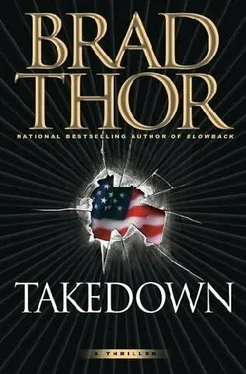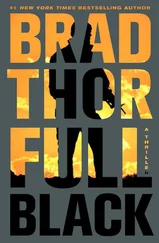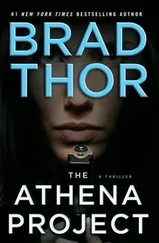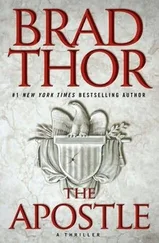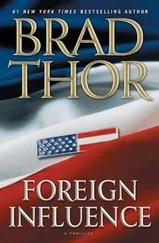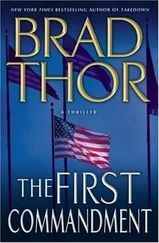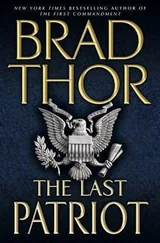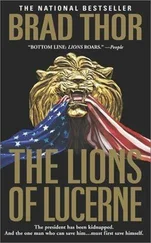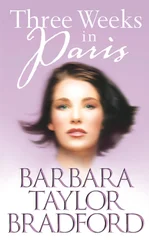Harvath didn’t envy the people who would have to spend the holiday weekend away from their families and friends while they interrogated Sayed Jamal, but that was how the business worked and Harvath knew it all too well. America couldn’t afford to take a day off from its fight on terrorism, not even on the anniversary of its independence. The bad guys were always working;always probing for another soft spot they could exploit, and America had to remain one step ahead.
As Harvath watched Jaffe walk away to join his men, he lamented the immutable fact that no matter how hard it tried, the United States would never be able to be on top of everything. This time, just like so many times before, they’d gotten lucky. That was it. Though they’d pulled a rather big player off the field, there were innumerable second-stringers standing in the shadows ready to take his place.
For all of the setbacks the enemy had supposedly suffered, their roster of fresh bodies seemed to roll on without end.
And the one unspoken truth that every American involved in the war on terror knew was that it wasn’t a matter of if the terrorists would hit us again, it was only a matter of when.
Harvath prayed that he would never see that day, because he knew that when it came, it would make 9/11 look like choir practice.
NEW YORK CITY
The drive from Rouses Point to Manhattan normally took five and a half hours, but with the help of a thermos full of coffee, a heavy foot, and George Clinton and Parliament, Harvath made it in four.
With the sunroof open, the windows rolled down, and “Tear the Roof Off the Sucker” pumping from the speakers of his black Chevy TrailBlazer, Harvath rumbled across the George Washington Bridge toward Manhattan a little after 2:00 PM. As he took in the skyline and watched the tidal wave of fleeing holiday traffic, the weather couldn’t have been better-low eighties, bright sunshine, and only a trace of humidity. It was going to be a perfect weekend.
An hour outside the city, Harvath had phoned his pal, recently retired Delta Force operative Robert Herrington-better known to his friends as “Bullet Bob”-and established a rendezvous point for their meeting.
Because Bob was still wrapping things up at the Manhattan VA, they decided to meet at one of Harvath’s favorite pubs near Times Square called the Pig amp; Whistle, where they’d begin the first leg of their bar-hopping Alcoholics Unanimous meeting.
After driving around the neighborhood for twenty minutes, Harvath settled on the cheapest garage he had seen, agreed to hand over his first born, three pints of blood, and a vital organ to be named at a later date as payment, and then walked four blocks over to the Pig.
Inside, the staff and the customers were glued to TV sets. Harvath grabbed a seat at the bar, ordered a pint of Bare Knuckle Stout, and tried to piece together what was happening.
The stations were covering a hostage standoff at a grade school in the Bronx. What a way to start the Fourth of July weekend, thought Harvath as he ordered a late lunch and tried to forget about the world and its problems for a while.
His mind drifted to the first time he and Bob Herrington had met. They’d been assigned to a unique Joint Special Operations program training the special forces of an allied South American country. The soldiers’ final task at the end of the training was to show off their new skills in a series of high-end exercises culminating with them assembling on a mountain plateau where the country’s president, its top generals, and other assorted VIPs were sitting in a reviewing stand. The catch was that it had to be done in a very tight time frame.
Though the soldiers were performing better than any of their American instructors thought they would, once they hit the run up the steep mountain face, it was obvious they weren’t going to make it up to the parade ground by the specified time. So what did Bob do? Once they arrived at the base of the mountain and were out of sight of the reviewing stand, he gathered up all the soldiers’ rifles, strapped them to his pack, and ran ahead of them.
For his part, Harvath couldn’t understand what Herrington was doing. Just below the plateau, he stopped and then handed a rifle to each one of the soldiers as they passed. Up on the parade ground, there were several moments of confusion as the soldiers traded rifles back and forth until each was with its rightful owner. As Harvath walked to the edge of the parade ground, he saw Bob smiling, and it was at that moment that he learned his greatest lesson about leadership-the only thing that matters is that your team achieve its objective together. How that happens is immaterial as long as you all cross the finish line together.
Bob could have taken credit for the soldiers’ success, but that wasn’t his style. He was happy just to see them succeed. Harvath had liked Bob from the minute he met him, but on that dusty parade ground in South America, he had developed a real respect for him and that respect had turned into a friendship that transcended the years and more than a few assignments together. In fact, Harvath often joked that Bob had become the older brother he never wanted.
Forty-five minutes later, Harvath was about to order another beer, when Bullet Bob materialized out of thin air and slapped a Joint Special Operations Task Force coin down on the bar. The rule was that if you and a colleague had both been given the same coin for an operation or a team you’d been on and you didn’t have your coin with you, you were responsible for buying the round. If you did have it, then the man who issued the challenge had to pick up that round. Harvath was way ahead of his old friend. Reaching down, he lifted his cocktail napkin and revealed his coin.
After asking if there was any Louis XIII Cognac in the house, Harvath shook his buddy’s hand. “Nice try, my friend,” he said, careful of Bob’s injured shoulder.
“You win some, you lose some,” replied Herrington, who was at least three inches taller than Harvath and a bit broader in the chest. His similarly colored brown hair was cut neat, but he still sported his go native Afghanistan beard. His narrow green eyes took in everybody and everything in the room. Turning to the bartender, Herrington said, “Bring us another round of whatever he’s drinking and make mine a double.”
“He’s having a pint of stout, love,” the Irish barkeep said flirtatiously.
Bob smiled his most charming smile and replied, “Then bring me two of them. I don’t like the fact that this guy’s got a head start on me.”
The woman rolled her eyes as she went in search of three new glasses.
“I think she likes you,” said Harvath once the woman was out of earshot.
“Hearts and minds. It’s what I’m all about.”
Harvath laughed. It was nice to see Bob in reasonably good spirits. Under the smile and devil-may-care attitude, though, he knew the man was not taking his forced retirement well. That was a big part of why Harvath was spending the Fourth of July weekend in New York City.
The other part was because at present, he didn’t have a solid relationship with anyone worth spending the weekend with. The only woman Harvath could have seen himself with was otherwise engaged, quite literally, and on her way to marrying someone else.
As if he could read minds, Bob wasted no time in asking, “So, how’s Meg?”
Harvath knew the subject was bound to come up. Both he and Bob had been part of a hostage rescue team that had freed Meg Cassidy from a hijacked airliner just a few years prior. Because Meg had been the only one to see the key hijacker’s face, she had been recruited to help track and ID him for termination. A good part of her training for the assignment had taken place behind the fence, as it was known, with Bob and several of his colleagues at the Delta Force compound at Fort Bragg. “This time next year, you and I’ll probably be attending her wedding,” said Harvath.
Читать дальше
